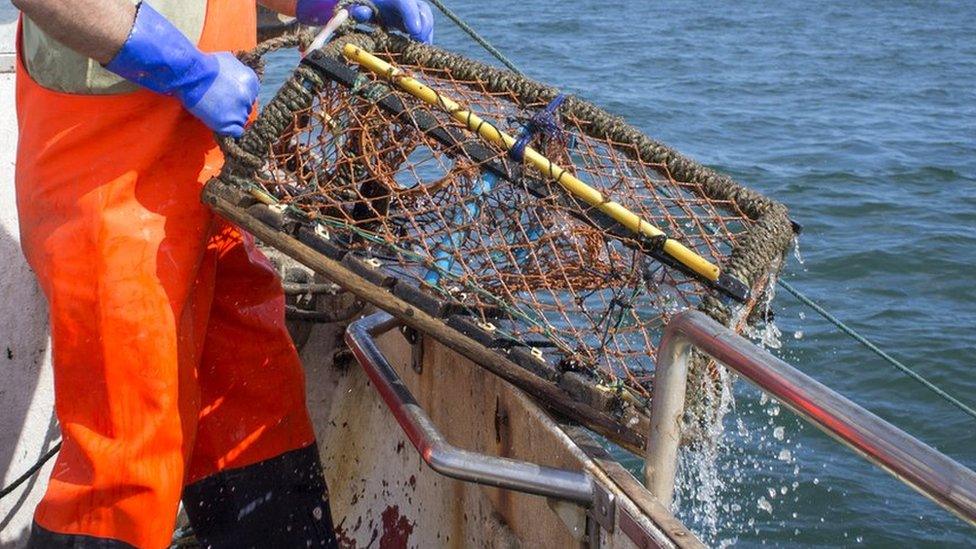Pulse fishing ban off East Anglian coast extended
- Published
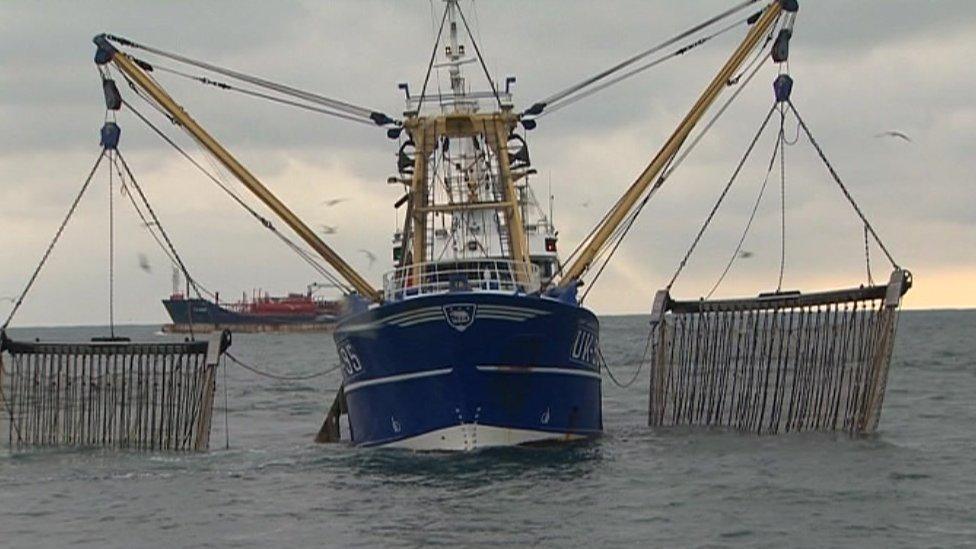
An informal agreement has banned pulse trawlers like this one from fishing off the Suffolk coast
An informal deal between Dutch and British fishermen has seen a ban on a controversial fishing method extended.
Suffolk fishermen claim pulse fishing, which stuns fish with an electric current, has cut their catch by 75%.
A 12-mile (19km) exclusion zone banning the practice was in place but this has now been extended to 18 miles (28km).
Dutch fishermen claim pulse fishing is sustainable and more energy efficient but have agreed to extend a no-go zone off the Suffolk coast.
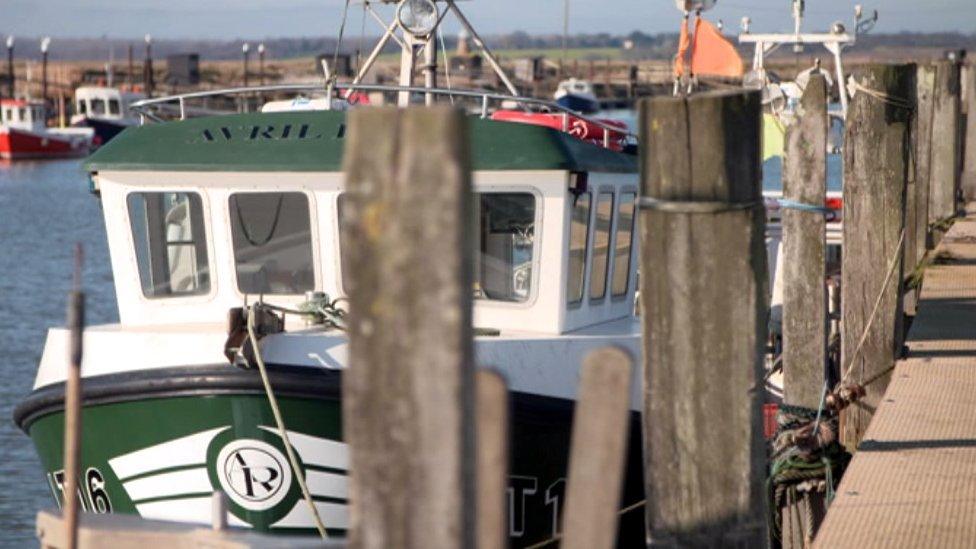
Fishing boats at Great Yarmouth
Pulse fishing was banned by the European Parliament in January 2018 but about 80 Dutch vessels were licensed to do research.
The initial exclusion zone prevented pulse trawling along the East Anglian coast but the informal deal, between the UK's National Federation of Fishermen's Organisations and their Dutch counterparts, has now extended that.
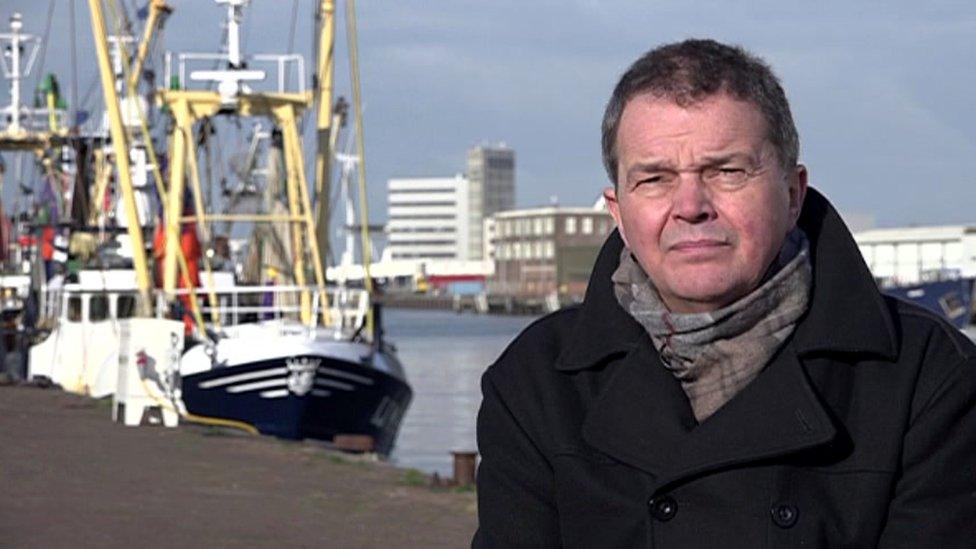
Pim Visser said the Dutch wanted to maintain good relations after Brexit
"If there is a controversy, it is best to sit around the table and find a joint solution," said Pim Visser, Dutch fishing industry spokesman.
He said the Netherlands wanted to maintain good relations with the NFFO after Brexit when European regulations would no longer apply.
A spokesman for the Department for Environment, Food and Rural Affairs said there were concerns about the impact of pulse fishing on certain fish species, including cod.
"As we leave the EU we are making changes that mean no foreign vessels will be able to pulse trawl in UK waters," the spokesman said.
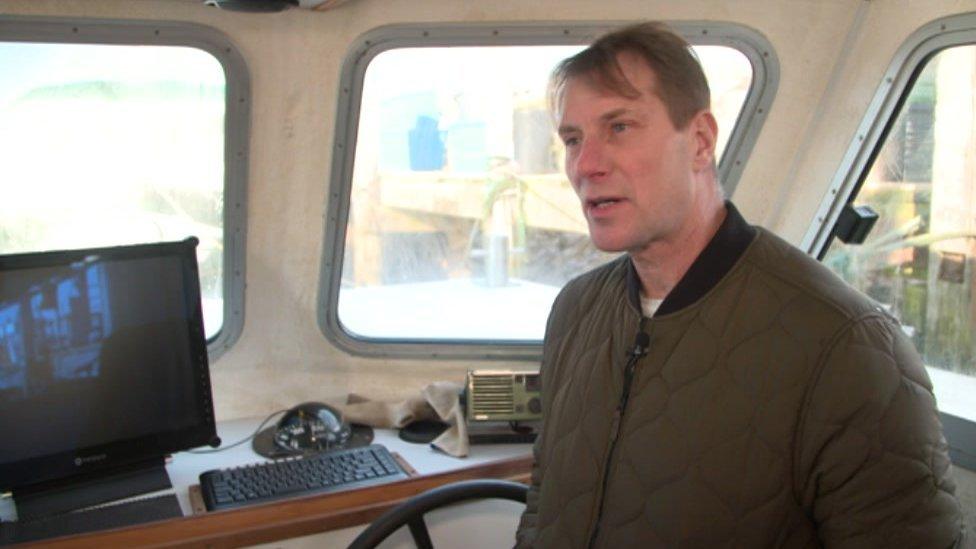
Skipper Paul Klyne's main catch used to be Dover sole
"It is just not viable," said Paul Klyne, skipper of Southwold boat Laura K, whose main catch is Dover sole.
Mr Klyne told the BBC's Sunday Politics East programme that catches of Dover sole had "plummeted" in the last five years, from up to 180kg (396lb) to 30-40kg (66-88lb) a day.
"I firmly believe that since the Dutch were licensed to pulse fish, there had been a major step backwards," he said.
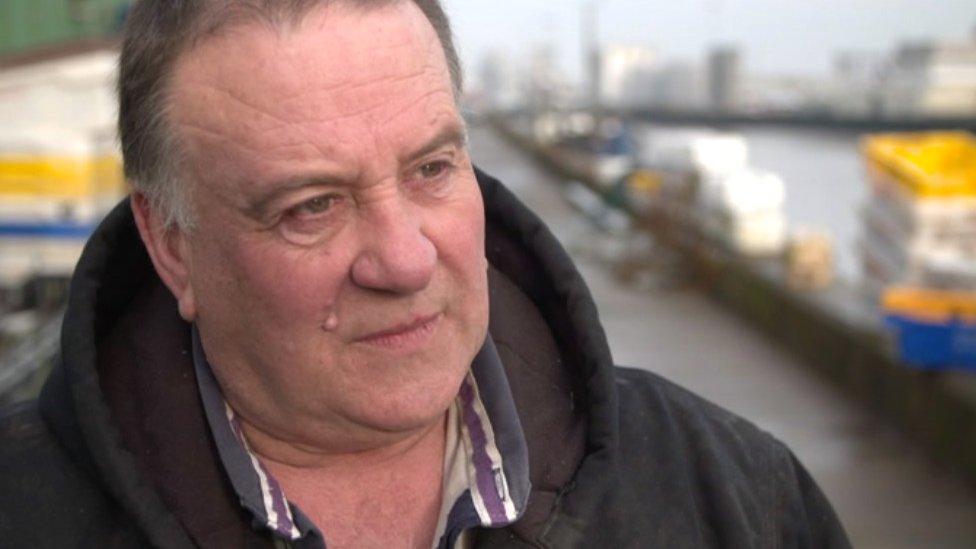
Paul Lines welcomes the agreement
Paul Lines, of Lowestoft Fish Alliance, said the extended no-go zone was "terrific news" but said the campaign would continue for a total ban on pulse fishing in the North Sea.
Sunday Politics East is on BBC One at 11:00 GMT.
- Published16 January 2018
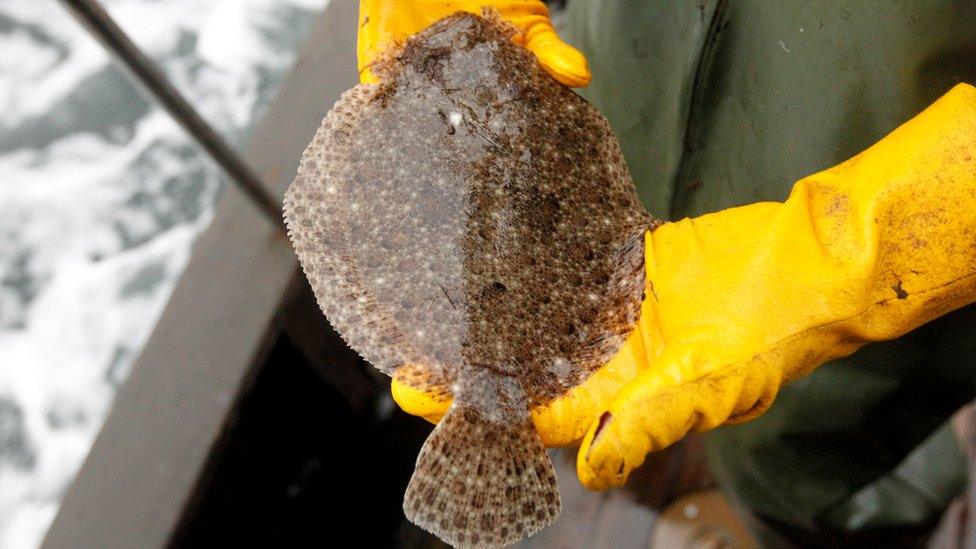
- Published2 August 2018
